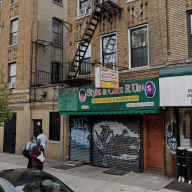The Republican tax bill will wallop some Mill Basin homeowners, thanks to its provision that reduces the amount of state and local property taxes people can deduct from their federal taxes, local experts said.
“In this sense they’re going to be killed,” said Frank Ramaglia, an accountant in the nabe. “You can’t deduct it all.”
The bill, which took effect on Jan. 1, prohibits residents from deducting more than $10,000 in state and local taxes — including property taxes — from their federal taxes. Previously, there was no limit on the amount of state and local taxes one could deduct.
The average annual real-estate tax for a home in Mill Basin is between $6,000 and $8,000, according to another tax pro, but when that amount is combined with state and local income taxes — as required in deductions under the new legislation — some residents will lose out.
“Mill Basin is going to feel the heat at very high levels when taking into account the sizes of the homes, and that the average-household income of a resident will be higher than that of those in many, but not all, other parts of Brooklyn,” said Robert Shoykhet, the owner of accounting firm Tax Consultants of New York, which serves clients in the neighborhood. “The bill will have a major impact on most families in Mill Basin with regards to the reduction.”
Ramaglia agreed that the $10,000 cap on deductions that combine property and income taxes is what will affect higher-earning Mill Basinites most.
“If you make a lot of money the bill will hurt you,” he said.
And even the nabe’s congressman — who voted against the bill when it hit the House of Representatives’ floor — worried it will deal a heavy blow to some of his constituents.
“Mill Basin is filled with a lot of homeowners who pay state, local, and property taxes,” said Rep. Hakeem Jeffries (D–Mill Basin). “Given the substantial limit in deductions, it will be particularly hurt.”
But the nabe’s councilman said that the deep-pocketed people who can afford massive homes in the area likely won’t bat an eyelash at the changes to the tax code, despite the high payments some residences command.
“There are a lot of high tax properties, but the people buying are very wealthy,” said Councilman Alan Maisel (D–Mill Basin). “It’s probably not that much of a difference.”
Shoyket said that some locals may start looking for loopholes in the bill, such as converting their homes into rental properties run as businesses, which would allow them to write off real-estate taxes as an expense.
And local realtor Anthony Sciortino, whose company 4U Realty does business in the nabe, said the demand for homes in Mill Basin remains high.
But residents won’t fully feel the bill’s effects until April 2019, when they file their 2018 taxes.
























